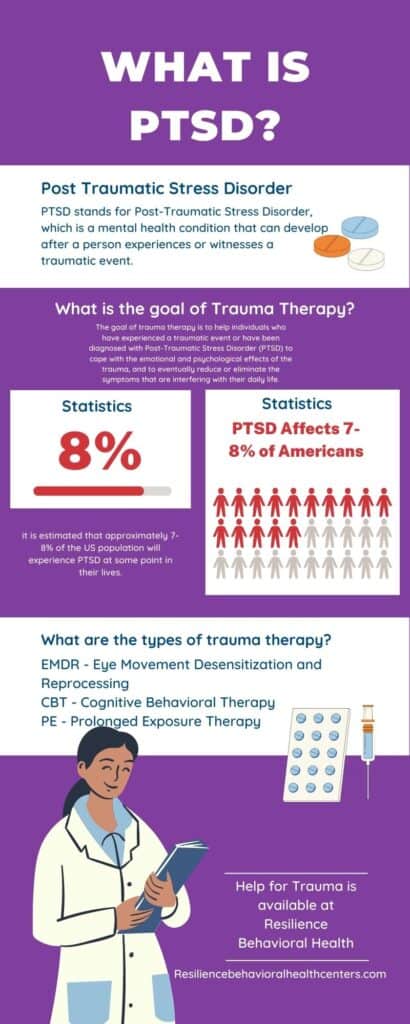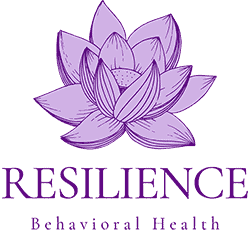EMDR Therapy and Its Impact on Depression in Massachusetts
EMDR therapy in Massachusetts offers hope for easing depression by addressing its root causes rather than just its symptoms. During EMDR sessions, people work through tough memories that fuel their depression.
This process helps reframe those memories, reducing their emotional weight and gradually relieving depressive feelings. In Massachusetts, EMDR shines as a way not just to ease symptoms but to heal and improve emotional well-being.
How EMDR Helps With Depression
Let’s dig a bit deeper to see how EMDR helps with Depression.
- EMDR goes beyond regular talk therapy: While typical therapy focuses on what’s happening now, EMDR digs into the past to find the real reasons behind feeling down.
- Perfect for past hurts: If your sadness comes from tough stuff in your past, like bad experiences or losses, EMDR can help.
- Special eye movements or tapping: EMDR uses these to help your brain work better. It’s like pressing a reset button for your tough memories, making them hurt less.
- Breaking free from bad thoughts: By doing this, EMDR helps stop the never-ending cycle of feeling down because of these memories.
- Taking charge of healing: EMDR lets you be part of fixing things. Facing tough memories in a safe place gives you power over your feelings.
- Building confidence: Working through these memories makes you stronger and more ready to handle whatever comes your way.
As you work through depression with EMDR, it helps you not only make sense of the past but also builds your strength for a brighter future ahead.
Research About EMDR’s Impact on Depression
Research has uncovered some encouraging findings about EMDR’s impact on depression:
- Equal Effectiveness: A study discovered that EMDR therapy is just as effective as other therapies in lessening depression. This means it can be as helpful as different treatments people might try for feeling better.
- Coping with Depression alongside PTSD: Another study highlighted that EMDR therapy could be very helpful for people handling both depression and other issues like PTSD. It’s like a double win for people facing more than one tough situation.
- Tough Cases of Depression: Recent research hints that EMDR might even be beneficial for individuals dealing with severe or hard-to-treat depression. This suggests that it could offer a ray of hope for those facing exceptionally challenging situations.
Let’s have a look at how EMDR therapy makes depression go away:

Explaining How EMDR Therapy Makes Depression Go Away
Adaptive Information Processing (AIP) Model
When something traumatic happens, it can kind of “stick” in our minds, causing a lot of negative feelings and thoughts.
EMDR’s Role: EMDR uses things like eye movements or tapping to help the brain process and sort out these stuck memories. This processing helps make those memories less distressing.
Outcome: By doing this, people can feel less upset, think more positively about themselves and the world, and as a result, experience fewer symptoms of depression.
Dual Attention Hypothesis
This idea says that when EMDR uses things like eye movements or other distractions, it helps our minds deal with tough memories better.
EMDR’s Effect: Using these distractions, it’s like giving our brains a chance to handle the tough stuff without feeling overwhelmed.
Outcome: This can help reduce how much those tough memories affect our emotions, making it easier to handle those thoughts and feelings.
Neurobiological Changes
Studies show that EMDR can change how our brains work, especially in areas that handle emotions.
Effects of EMDR: It seems to boost the part of our brain that helps control our thoughts and feelings (prefrontal cortex) while calming down the part that triggers fear and anxiety (amygdala).
Outcome: These changes in the brain can play a role in making depression symptoms lessen over time.
Keep in mind that the impact of EMDR on depression can differ because of a few reasons:
Factors That Impact EMDR’s Effect On Depression
The Severity Of The Depression
Sometimes, if the depression is intense or has been there for a long time, it might take longer for EMDR to show its full effect. In severe cases, additional or different treatments might be needed alongside EMDR to get better results.
Presence of Other Mental Health Conditions
If someone is facing other mental health issues, such as anxiety or PTSD, it might influence how effective EMDR therapy can be for them. Sometimes, those other issues might need specific treatments or attention too, which can influence the overall progress with EMDR.
Individual Response to Treatment
Just like how different people react differently to medicines, therapy can also affect individuals in various ways. Some people might feel improvements quickly with EMDR, while for others, it could take more sessions or a different approach to see noticeable changes.
So, EMDR therapy helps with depression by dealing with how our minds handle tough experiences, using distractions to manage emotions, and even changing how our brains work for the better.
Resilience Behavioral Health
Would you like to learn more about how EMDR Therapy can make a difference in fighting depression in Massachusetts? Get in touch with Resilience Behavioral Health today at 888.401.1179 to find out how this unique therapy could help you or your loved ones.
Start your path toward feeling better and healthier by exploring how EMDR can ease depression. Reach out to us to schedule a consultation and take the first step towards emotional well-being.
Centers That Provide Help From Depression Through EMDR in MA
The Center for Anxiety, Traumatic Stress Disorders, and Complicated Grief Program
The Center for Anxiety, Traumatic Stress Disorders, and Complicated Grief Program is located at Bowdoin St in Boston, MA, and operates within Massachusetts General Hospital. They specialize in managing anxiety, PTSD, and complex grief. Their comprehensive treatment program incorporates EMDR therapy as part of their approach.
Center For Depression
Center For Depression located at 115 Mill St, Belmont, MA, this center operates within McLean Hospital. They specialize in researching and treating depression, integrating EMDR therapy into their studies.
Evolve Therapy
Situated at 101 Arch St Suite 800, Boston, MA, Evolve Therapy, this private practice offers diverse therapy services, including specialized EMDR therapy customized to address depression.
Whole Mind Therapy and Counseling
Found at 200 Chauncy St #113, Mansfield, MA, Whole Mind Therapy and Counseling provides therapy for individuals, couples, and families. Their treatment regimen incorporates EMDR therapy tailored for depression treatment.
Zoe Valette Boston EMDR and Hypnotherapy
Zoe Valette Boston EMDR and Hypnotherapy is located at 1371 Beacon St, Brookline, MA, this private practice specializes in EMDR therapy and hypnotherapy, offering personalized treatments for depression-related issues.
These centers offer specialized EMDR therapy in Massachusetts for individuals seeking support and treatment for depression-related concerns.
Conclusion
EMDR therapy in Massachusetts is more than just a way to ease depression symptoms; it’s a journey toward understanding and healing. By revisiting tough memories and reshaping how they affect us, EMDR helps break the cycle of negative thoughts and feelings.
It’s like rewiring our minds to handle difficult experiences in a healthier way. Research shows its promise, particularly in addressing not just depression but also related challenges like PTSD.
Although its impact can vary based on different factors, EMDR offers a unique pathway to tackle depression’s root causes and pave the way for a brighter, emotionally healthier future.
If you’re considering EMDR therapy for depression in Massachusetts, these specialized centers can offer tailored support and guidance. If you’re still puzzled about where to find the appropriate EMDR therapy care for yourself, call 888.401.1179 to talk to your dedicated care professional at Resilience Behavioral Health.


